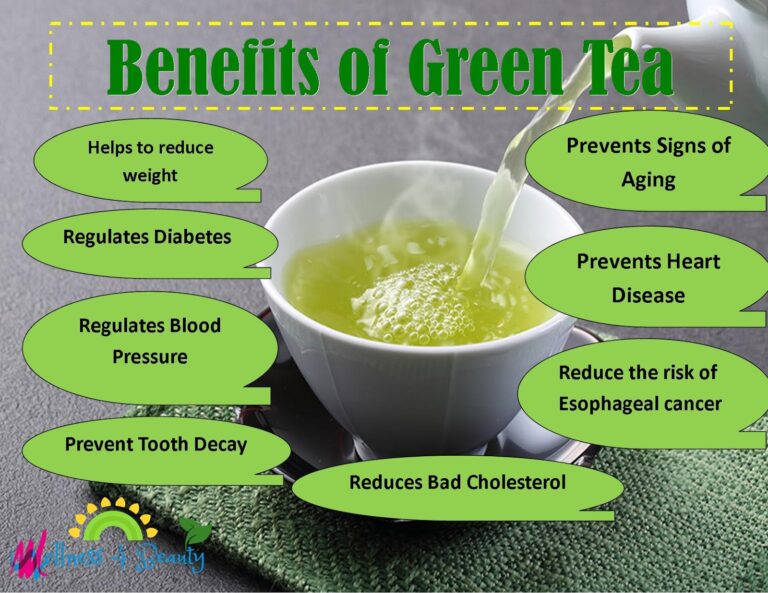The Elixir of Aspiration: Does Apple Cider Vinegar Really Help Shed Pounds?
In the relentless pursuit of a leaner physique and optimal health, humanity has, throughout history, been captivated by the allure of the "magic bullet"—the single, simple solution to complex problems. In our modern era, amidst the cacophony of wellness trends and diet fads, one humble kitchen staple has risen to prominence, whispered about in health forums and championed by wellness gurus: Apple Cider Vinegar (ACV). From ancient folk remedies to contemporary Instagram feeds, ACV has been lauded as a panacea for everything from digestive woes to glowing skin, and, perhaps most enticingly, as a potent aid in the battle against the bulge.
The narrative is compelling: a natural, inexpensive, and readily available liquid, derived from fermented apples, promising to melt away stubborn fat, regulate blood sugar, and curb voracious appetites. It’s a story as old as time, repackaged for the 21st century: a simple, almost mystical elixir offering a shortcut to a goal that typically demands discipline, consistency, and often, significant sacrifice. But beyond the captivating narrative, the enthusiastic testimonials, and the pervasive social media buzz, lies a more fundamental, critical question: Does apple cider vinegar really help shed pounds, or is it merely another chapter in the long, often disappointing, story of weight loss myths?
This article delves deep into the heart of this question, embarking on a journey through history, folklore, biochemistry, and scientific scrutiny. We will unravel the proposed mechanisms through which ACV is purported to influence weight, dissect the existing scientific evidence—separating anecdote from empirical data—and explore the practical considerations, potential benefits, and very real risks associated with its use. Our aim is not to dismiss ACV outright, nor to uncritically endorse it, but rather to equip the knowledgeable reader with a comprehensive, nuanced understanding, allowing them to navigate the often-murky waters of health claims with clarity and informed perspective. The story of ACV and weight loss is not just about a liquid; it’s about our enduring human desire for easy answers and the critical importance of understanding the intricate dance between belief, biology, and scientific truth.
The Enduring Myth and the Modern Craze: A Legacy of Promise
The fascination with apple cider vinegar is far from a contemporary phenomenon. Its roots stretch back millennia, intertwined with the very fabric of human civilization and our early forays into medicine and nutrition. Hippocrates, the revered father of Western medicine, is famously reported to have prescribed ACV for a variety of ailments, including coughs and colds, around 400 BC. Its use continued through various cultures – the Romans, Egyptians, and even Japanese samurai – who valued it for its purported healing and invigorating properties. For centuries, it was a staple in folk medicine cabinets, brewed into tonics, used as a disinfectant, and consumed for general well-being. The belief in its "detoxifying" and "purifying" qualities has been a constant thread throughout this long history.
Fast forward to the modern era, and ACV has undergone a remarkable renaissance, propelled by the digital age and the insatiable appetite for natural health remedies. Social media platforms, in particular, have become fertile ground for the propagation of its purported benefits. Influencers, celebrities, and wellness bloggers enthusiastically endorse its daily consumption, often attributing dramatic health transformations and effortless weight loss to its inclusion in their routines. This digital echo chamber amplifies the message, creating a pervasive belief that ACV is not just beneficial, but a virtually indispensable tool for anyone aspiring to a healthier, leaner life.
The appeal is multifaceted. In a world saturated with highly processed foods and complex pharmaceutical solutions, ACV offers a refreshing counter-narrative: a simple, natural, and inexpensive remedy, seemingly untouched by the complexities of modern industry. It taps into a primal desire for authenticity and purity, a return to "what nature intended." Moreover, the promise of weight loss, often depicted as a simple consequence of adding a tablespoon or two to one’s daily regimen, is incredibly powerful. It offers a shortcut, a glimmer of hope that the arduous journey of calorie counting, rigorous exercise, and dietary restrictions might be circumvented, or at least significantly eased. This narrative, while alluring, often bypasses the intricate realities of human metabolism and the multifaceted nature of sustainable weight management, which rarely, if ever, yields to a single, simple solution.
Deconstructing the Claims: Proposed Mechanisms of Action
To understand whether apple cider vinegar truly aids in weight loss, we must move beyond anecdotal claims and delve into the proposed biological mechanisms. At the heart of ACV’s purported efficacy lies acetic acid, the primary active compound responsible for its pungent smell and sour taste. Typically, apple cider vinegar contains about 5-6% acetic acid. It is this organic acid that researchers believe could potentially exert a variety of effects on the human body, some of which might indirectly influence weight.
1. Blood Sugar Regulation and Insulin Sensitivity
One of the most robust and consistently researched areas regarding ACV’s health benefits, and one that holds significant implications for weight management, is its potential role in blood sugar regulation. When we consume carbohydrates, they are broken down into glucose, which enters the bloodstream. The pancreas then releases insulin to shuttle this glucose into cells for energy or storage. Frequent, sharp spikes in blood sugar, followed by corresponding insulin surges, can contribute to insulin resistance over time, making it harder for the body to utilize glucose efficiently and often promoting fat storage, particularly around the abdomen.
Proposed Mechanism: Several studies suggest that acetic acid may help to blunt post-meal blood sugar spikes. This is thought to occur through several pathways:
- Inhibition of Carbohydrate Digestion: Acetic acid may inhibit the activity of certain digestive enzymes, such as alpha-amylase, which are responsible for breaking down complex carbohydrates into simple sugars. By slowing this breakdown, less glucose enters the bloodstream at once, leading to a more gradual rise in blood sugar.
- Enhanced Glucose Uptake: Some research indicates that acetic acid might improve the ability of muscle cells to take up glucose from the blood, even without increased insulin secretion, thereby enhancing insulin sensitivity.
- Reduced Glucose Production: There’s also evidence that acetic acid might reduce glucose production by the liver.
By mitigating post-meal glucose fluctuations and potentially improving insulin sensitivity, ACV could theoretically help stabilize energy levels, reduce cravings for sugary foods (which often follow a blood sugar crash), and create a more favorable metabolic environment that discourages excessive fat storage. For individuals with insulin resistance or prediabetes, this aspect of ACV is particularly intriguing, though it’s crucial to note it’s not a substitute for medical treatment.
2. Appetite Suppression and Enhanced Satiety
Another frequently cited mechanism linking ACV to weight loss is its potential to suppress appetite and increase feelings of fullness, thereby leading to reduced caloric intake.
Proposed Mechanism:
- Delayed Gastric Emptying: The most commonly proposed mechanism here is that acetic acid slows down the rate at which food leaves the stomach and enters the small intestine. When food remains in the stomach longer, it sends signals of fullness to the brain, prolonging satiety. This effect has been observed in human studies, where participants consuming ACV with a meal reported feeling fuller for longer.
- Direct Impact on Satiety Hormones: While less clear, some theories suggest ACV might influence the release of satiety hormones in the gut, further contributing to feelings of fullness.
- The "Nausea" Factor: It’s also worth considering a less glamorous, albeit effective, mechanism: the sheer unpleasantness of consuming ACV for some individuals. The strong taste and acidity, especially if not adequately diluted, can induce mild nausea or digestive discomfort. While this might lead to reduced food intake, it’s hardly a sustainable or enjoyable weight loss strategy.
If ACV genuinely enhances satiety and reduces hunger, it could indirectly contribute to weight loss by naturally leading individuals to consume fewer calories throughout the day, without the conscious effort of restrictive dieting.
3. Fat Metabolism and Storage
Beyond blood sugar and appetite, some proponents suggest ACV directly influences how the body processes and stores fat. This area of research is predominantly based on animal studies, with human evidence being much more limited.
Proposed Mechanism:
- Increased Fat Burning: Animal studies (primarily on rats and mice) have shown that acetic acid may activate certain genes involved in fat oxidation (burning fat for energy) and reduce the expression of genes involved in fat storage. For example, some studies found that acetic acid suppressed fat accumulation in the liver and adipose tissue in mice on a high-fat diet.
- Reduced Lipogenesis: Acetic acid may also interfere with lipogenesis, the process by which the body converts excess energy into fat for storage.
While these animal findings are intriguing, the leap from rodent physiology to human metabolism is significant. The doses used in animal studies are often proportionally much higher than what humans typically consume, and metabolic pathways can differ considerably. Therefore, direct human evidence for ACV significantly boosting fat burning or directly reducing fat storage remains largely speculative and requires extensive further research.
4. Metabolism Boost and Detoxification (Less Evidence-Based Claims)
Two other claims often associated with ACV and weight loss are a "metabolism boost" and "detoxification."
- Metabolism Boost: While ACV’s effects on blood sugar and fat metabolism could indirectly influence overall metabolic health, there is little to no direct scientific evidence to suggest that ACV significantly "boosts" metabolic rate in a way that would independently lead to substantial weight loss. The idea of a dramatic metabolic acceleration from ACV is largely unsubstantiated.
- Detoxification: The concept of "detoxification" is a popular wellness buzzword, often implying that certain foods or supplements can cleanse the body of undefined toxins. Scientifically, the human body has highly efficient organs—the liver and kidneys—that continuously detoxify the body. While ACV may have antioxidant properties and support general health, there’s no scientific basis to suggest it performs a unique or superior "detoxifying" function that directly contributes to weight loss by eliminating specific "toxins" that cause fat accumulation. This claim is largely pseudoscientific.
In summary, the most plausible and scientifically explored mechanisms linking ACV to weight management revolve around blood sugar regulation and appetite control, driven primarily by its acetic acid content. The direct impact on fat metabolism and overall metabolic rate requires much more rigorous human research.
The Scientific Evidence: What Do Studies Actually Say?
Having explored the theoretical mechanisms, the critical next step is to examine the actual scientific evidence—specifically, human clinical trials—to determine if these proposed effects translate into tangible weight loss results. The landscape of research on ACV and weight loss is, to put it mildly, sparse, characterized by a few pioneering studies and a notable absence of large-scale, long-term, randomized controlled trials (RCTs) – the gold standard in medical research.
The Landmark (and Often Misinterpreted) Japanese Study (Kondo et al., 2009)
The most frequently cited and foundational human study supporting ACV’s role in weight loss was published in 2009 by a team of Japanese researchers led by Tomoo Kondo. This study, often the bedrock for many ACV weight loss claims, warrants a detailed examination.
-
Study Design: The study was a double-blind, placebo-controlled trial involving 175 obese Japanese adults (BMI between 25-30 kg/m²). Participants were randomly assigned to one of three groups for 12 weeks:
- Group 1: Consumed 15 mL (1 tablespoon) of ACV daily.
- Group 2: Consumed 30 mL (2 tablespoons) of ACV daily.
- Group 3: Consumed a placebo drink (a beverage with similar taste but no acetic acid).
- All participants were advised to maintain their usual dietary habits and physical activity levels.
-
Key Findings: After 12 weeks, the results showed modest, but statistically significant, differences compared to the placebo group:
- Weight Loss:
- 15 mL ACV group: Lost an average of 1.2 kg (2.6 lbs).
- 30 mL ACV group: Lost an average of 1.7 kg (3.7 lbs).
- Placebo group: Gained a very slight average of 0.4 kg (0.9 lbs).
- BMI Reduction: Both ACV groups saw a reduction in BMI.
- Waist Circumference: Both ACV groups experienced a reduction in waist circumference (0.9 cm for 15 mL group, 1.9 cm for 30 mL group).
- Visceral Fat Area: Crucially, both ACV groups showed a decrease in visceral fat area (the metabolically active fat surrounding organs), which is linked to metabolic disease risk.
- Triglyceride Levels: The ACV groups also had lower serum triglyceride levels.
- Weight Loss:
-
Crucial Caveats and Interpretation: While these results appear promising, it is imperative to interpret them within their proper context:
- Modest Results: The weight loss observed was very modest—less than 4 pounds over three months. This is far from the dramatic transformations often depicted in anecdotal accounts. It translates to less than a pound a month.
- Specific Population: The study was conducted on a specific population: obese Japanese adults. Metabolic responses can vary across different ethnicities and body compositions.
- Lack of Dietary Control: Participants were asked to maintain their "usual" diet, which introduces a significant variable. It’s possible that the ACV groups unconsciously reduced their intake due to enhanced satiety or even mild nausea, rather than ACV directly burning fat. The study did not rigorously track caloric intake.
- Short Duration: 12 weeks is a relatively short period for evaluating sustainable weight loss strategies. Longer-term studies are needed to assess the durability of these effects and potential long-term side effects.
- Small Sample Size: While 175 participants is not insignificant, larger studies are typically preferred to confirm such findings and ensure generalizability.
- Mechanism Unclear: While the study observed outcomes, the precise mechanisms driving these modest changes were not fully elucidated.
Therefore, while the Kondo study provides the most compelling human evidence to date, it does not support the notion of ACV as a "miracle cure" or a primary driver of significant weight loss. It suggests that ACV might be a minor contributing factor, potentially supporting weight management in conjunction with other healthy habits, particularly through effects on visceral fat and triglycerides.
Other Smaller Human Trials
Beyond the Kondo study, other smaller human trials have explored specific aspects of ACV’s impact:
- Satiety Studies: Several studies have confirmed that consuming ACV before or with a meal can increase feelings of satiety and fullness. For example, a 2013 study in the Journal of Functional Foods found that subjects who consumed ACV with a high-carb breakfast reported significantly higher satiety scores. However, some of these studies also noted that the increased fullness was sometimes accompanied by feelings of nausea, particularly with higher doses.
- Blood Glucose Studies: Numerous studies have consistently shown ACV’s ability to reduce post-meal blood glucose spikes, especially in individuals with insulin resistance or type 2 diabetes. A 2004 study published in Diabetes Care found that consuming ACV before a high-carbohydrate meal significantly improved insulin sensitivity in insulin-resistant subjects. While these effects are significant for metabolic health, their direct translation to substantial weight loss is indirect and depends on how these metabolic improvements influence overall energy balance.
- Body Composition Studies: Some studies, though fewer and smaller, have looked at body composition. A 2018 meta-analysis of studies on ACV and body weight concluded that ACV consumption might have a beneficial effect on weight and BMI, but emphasized the need for more high-quality, long-term studies.
Animal Studies: Intriguing but Not Definitive
As mentioned previously, animal studies often show more pronounced effects, such as reduced fat accumulation, increased fat burning, and improved metabolic markers in mice and rats. For instance, a 2006 study found that acetic acid suppressed body fat accumulation in mice fed a high-fat diet. While these findings provide valuable insights into potential biological pathways, the direct extrapolation to humans is problematic due to physiological differences and vastly different dosages relative to body weight.
The Overall Picture: Limited and Modest Evidence
In essence, the current scientific evidence for apple cider vinegar directly causing significant weight loss in humans is limited and suggests only modest effects. While ACV appears to have a consistent, albeit small, positive impact on blood sugar regulation and may enhance satiety, these effects are unlikely to lead to dramatic weight loss on their own. It is crucial to distinguish between a modest aid and a primary solution. The narrative of ACV as a powerful weight loss agent largely outpaces the scientific evidence available. More robust, larger-scale, and longer-duration human trials are desperately needed to fully understand ACV’s true potential and limitations in the context of weight management.
Practical Considerations and Potential Side Effects
For those considering incorporating apple cider vinegar into their routine, understanding the practical aspects of its consumption and, crucially, its potential side effects, is as important as reviewing the scientific evidence. While generally recognized as safe for most people when consumed appropriately, ACV is far from benign and carries specific risks.
Dosage and Method of Consumption
- Typical Dosage: Most studies and recommendations suggest a dosage of 1-2 tablespoons (15-30 mL) per day. The Kondo study, for instance, used these exact amounts.
- Dilution is Key: This is perhaps the most critical advice. ACV should never be consumed undiluted. Its high acidity (pH typically 2.5-3.0) can cause significant damage. It should always be mixed with at least 8 ounces (240 mL) of water. Some prefer to mix it with juice, but be mindful of added sugars.
- Timing: Many proponents suggest consuming ACV 15-30 minutes before a meal. This timing is based on the idea that it can help moderate post-meal blood sugar spikes and enhance satiety before food intake.
- The "Mother": Unfiltered, unpasteurized ACV, which contains a cloudy sediment known as the "mother" (a complex of beneficial bacteria, proteins, and enzymes), is often recommended. While the "mother" is rich in probiotics and other compounds, there’s no definitive scientific evidence that it specifically enhances ACV’s weight loss properties compared to filtered ACV. However, it is generally considered a more wholesome product.
Potential Risks and Side Effects
Despite its natural origins, ACV is a potent acid and comes with a range of potential adverse effects, particularly if consumed incorrectly or in excessive amounts.
-
Tooth Enamel Erosion: This is arguably the most significant and well-documented risk. The high acidity of ACV can erode tooth enamel over time, making teeth more sensitive, prone to cavities, and discolored.
- Mitigation: Always dilute ACV extensively. Use a straw to minimize contact with teeth. Rinse your mouth thoroughly with plain water immediately after consumption (do not brush your teeth right away, as this can further abrade softened enamel). Waiting at least 30 minutes before brushing allows enamel to re-harden.
-
Esophageal and Digestive Tract Irritation/Burns: Consuming undiluted ACV, or even highly concentrated diluted ACV, can cause irritation, soreness, or even chemical burns in the esophagus and throat. Individuals with pre-existing conditions like GERD (gastroesophageal reflux disease) or ulcers are particularly vulnerable.
- Mitigation: Strict adherence to dilution guidelines. If you experience burning or discomfort, discontinue use.
-
Digestive Issues: While ACV is often touted for digestive benefits, for some, its acidity and effect on gastric emptying can cause adverse reactions. These include:
- Nausea: As noted in some studies, this can be a side effect, particularly at higher doses.
- Indigestion/Heartburn: Despite some claims that it helps heartburn, for others, its acidity can exacerbate it, especially in those prone to acid reflux.
- Delayed Gastric Emptying: While beneficial for satiety, in some individuals, particularly those with gastroparesis (a condition where the stomach empties slowly), ACV could worsen symptoms.
-
Drug Interactions: ACV can interact with certain medications, potentially leading to adverse health outcomes.
- Diuretics and Insulin/Blood Sugar Medications: ACV can lower blood sugar and potassium levels. Combining it with diuretics (which also lower potassium) or insulin/diabetes medications (which lower blood sugar) could lead to dangerously low blood sugar (hypoglycemia) or dangerously low potassium (hypokalemia).
- Laxatives: Some types of laxatives also affect potassium levels.
- Digoxin: A heart medication, can be affected by changes in potassium levels.
-
Bone Density Concerns (Rare): There is one documented case study of a 28-year-old woman who, over several years, consumed 250 mL (about 1 cup) of undiluted ACV daily. She developed severe hypokalemia (low potassium) and osteoporosis. While an extreme case of misuse, it highlights the potential for serious consequences with chronic, excessive, and improper consumption.
Who Should Avoid It?
Given these risks, certain individuals should exercise extreme caution or avoid ACV altogether:
- Individuals with GERD, ulcers, or other digestive tract issues.
- Diabetics: Only use under strict medical supervision due to potential interactions with medications and the risk of hypoglycemia.
- Anyone taking diuretics, laxatives, or medications for heart conditions that affect potassium levels.
- Pregnant or breastfeeding women: There’s insufficient research on ACV’s safety in these populations.
- Individuals with kidney disease: May have difficulty processing acids and regulating electrolyte balance.
ACV Supplements and Gummies
The market is flooded with ACV supplements in pill, capsule, and gummy forms, promising the benefits without the taste or acidity concerns.
- Pros: Convenience, palatable taste, bypasses direct tooth enamel contact (though gummies can still stick to teeth and have sugar).
- Cons:
- Acetic Acid Content: Many supplements may contain significantly less acetic acid than liquid ACV, or their acetic acid content is inconsistent and unregulated. It’s the acetic acid that is believed to be the active ingredient.
- Lack of Regulation: Dietary supplements are not as strictly regulated by bodies like the FDA as pharmaceuticals. What’s on the label may not always be what’s in the bottle.
- Hidden Ingredients: Gummies, in particular, often contain added sugars, which can negate any potential health benefits, especially for weight loss.
- Still Acidic: Even in capsule form, the ACV can still cause irritation if the capsule dissolves too quickly in the esophagus or stomach. Gummies are also acidic and can contribute to tooth decay if they linger on teeth.
While appealing for their ease of use, liquid ACV, properly diluted, remains the most studied and reliable form for delivering the purported benefits, with a clear understanding of its acetic acid content. It is always wise to consult a healthcare professional before starting any new supplement regimen, including ACV.
The Broader Picture: ACV in the Context of Sustainable Weight Loss
The allure of apple cider vinegar, like so many other "superfoods" and "detoxes," lies in its promise of simplicity in a world of complexity. The narrative of a single ingredient transforming one’s health and physique is undeniably attractive. However, when we place ACV within the broader, evidence-based understanding of sustainable weight loss, its role diminishes from a primary driver to, at best, a potential adjuvant.
No Magic Bullet
The most crucial takeaway from any objective analysis of ACV and weight loss is that it is not a magic bullet. There is no scientific evidence to suggest that consuming ACV alone, without any other lifestyle modifications, will lead to significant or sustainable weight loss. The human body is an intricate system, and weight management is a complex interplay of genetics, metabolism, hormones, psychological factors, and, critically, consistent energy balance.
The Fundamental Principles Remain Unchanged
Sustainable weight loss hinges on well-established, fundamental principles that no single food or supplement can bypass:
- Caloric Deficit: To lose weight, one must consistently consume fewer calories than the body expends. This is the bedrock of weight loss. ACV, at best, might indirectly contribute to a caloric deficit by enhancing satiety, but it does not directly burn a significant number of calories.
- Balanced Nutrition: A diet rich in whole foods—fruits, vegetables, lean proteins, and healthy fats—is essential for satiety, nutrient intake, and metabolic health. ACV is not a substitute for a nutritious diet.
- Regular Physical Activity: Exercise burns calories, builds muscle mass (which boosts metabolism), improves cardiovascular health, and contributes to overall well-being.
- Adequate Sleep: Poor sleep disrupts hormones that regulate appetite (ghrelin and leptin) and can increase cravings for unhealthy foods.
- Stress Management: Chronic stress can lead to elevated cortisol levels, which can promote abdominal fat storage and increase appetite.
- Consistency and Patience: Weight loss is a marathon, not a sprint. It requires consistent effort over time and realistic expectations.
ACV as an "Adjuvant": A Minor Supporting Role
If ACV offers any benefit, it is likely as a very minor, supplementary tool within a comprehensive, health-oriented lifestyle. Its potential effects on blood sugar regulation and satiety could theoretically make it slightly easier for some individuals to adhere to a calorie-controlled diet. By blunting glucose spikes, it might help stabilize energy levels and reduce post-meal crashes that often lead to cravings. By promoting fullness, it might help reduce overall caloric intake.
However, these are subtle effects, and their impact is likely dwarfed by the power of conscious dietary choices, portion control, and regular exercise. For someone making significant changes to their diet and activity levels, any marginal benefit from ACV might be imperceptible or attributed to the larger lifestyle overhaul.
The Placebo Effect and the Power of Belief
It’s also crucial to acknowledge the potent influence of the placebo effect. If an individual believes that ACV is helping them lose weight, they may unconsciously make other healthier choices, feel more motivated, or be more diligent with their diet and exercise. This self-fulfilling prophecy can lead to perceived success, even if the direct physiological impact of ACV is minimal. While the placebo effect is a powerful tool in health, it underscores that the perceived benefits are not always solely attributable to the substance itself.
The Danger of Over-Reliance
Perhaps the greatest danger in the widespread promotion of ACV for weight loss lies in its potential to foster an over-reliance on a "quick fix." If individuals believe that simply adding ACV to their routine will solve their weight problems, they may neglect the more challenging, yet fundamentally necessary, lifestyle changes that truly drive sustainable health and weight management. This can lead to disappointment, frustration, and a cycle of trying and abandoning various fads, rather than committing to proven strategies.
The narrative of ACV and weight loss, therefore, serves as a powerful illustration of our collective human desire for simple solutions to complex problems. While ACV is not without its health benefits, particularly regarding blood sugar, positioning it as a primary weight loss aid exaggerates its capabilities and risks diverting attention from the true pillars of health and sustainable weight management.
Conclusion: A Balanced Perspective on the Elixir of Aspiration
Our journey through the world of apple cider vinegar and its purported role in weight loss reveals a nuanced landscape, far more intricate than the simplistic narratives often portrayed in popular culture. From ancient remedies to modern wellness trends, ACV has captivated generations with its promise of health and vitality. Yet, when subjected to the rigorous lens of scientific inquiry, its power as a weight loss agent appears to be significantly more modest than often advertised.
We’ve seen that the primary active component, acetic acid, does possess intriguing biological properties. Research, particularly on its effects on blood sugar regulation and potential for enhancing satiety, offers some plausible mechanisms through which ACV might indirectly support weight management. By blunting post-meal glucose spikes and potentially slowing gastric emptying, it could theoretically aid in appetite control and foster a more stable metabolic environment.
However, the scientific evidence, especially from human clinical trials, remains limited. The landmark Kondo study, while providing the most direct evidence, revealed only modest weight loss (a few pounds over three months) in a specific population. Crucially, it did not definitively establish ACV as a primary driver of fat loss, nor did it fully control for other variables that influence caloric intake. Larger, longer-term, and more diverse studies are unequivocally needed to draw robust conclusions.
Furthermore, the enthusiastic adoption of ACV must be tempered with a clear understanding of its practical considerations and potential risks. Its high acidity poses a genuine threat to tooth enamel and can cause irritation to the digestive tract, especially if consumed undiluted or excessively. Interactions with certain medications and potential electrolyte imbalances are also serious concerns, necessitating caution and, ideally, consultation with a healthcare professional.
Ultimately, the story of apple cider vinegar and weight loss serves as a powerful reminder: there are no magic bullets for sustainable health or weight management. The complex interplay of genetics, metabolism, diet, physical activity, sleep, and stress cannot be overridden by a single supplement or food. While ACV may offer some minor, ancillary benefits, particularly in metabolic regulation, it is unequivocally not a substitute for the foundational principles of a balanced, calorie-appropriate diet and regular physical activity.
For the knowledgeable individual, ACV might be a low-risk experiment, if approached with caution, proper dilution, and realistic expectations. It could be seen as a small, potentially beneficial addition to an already







